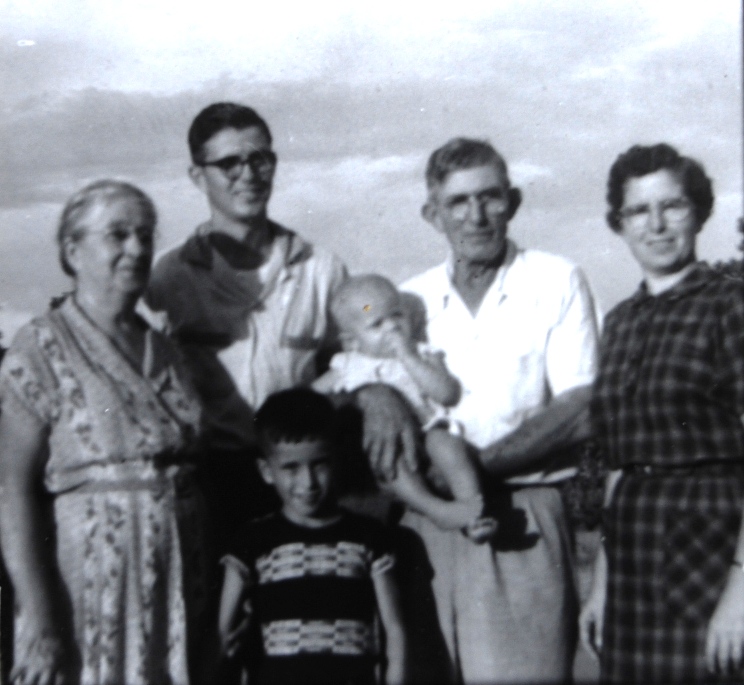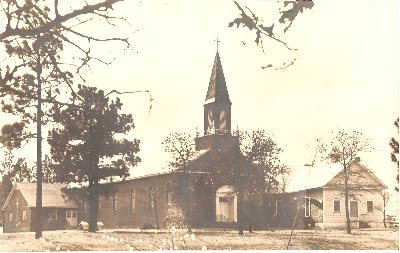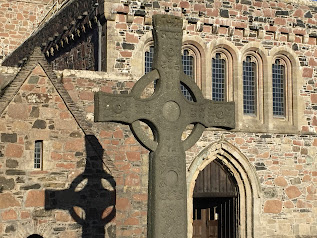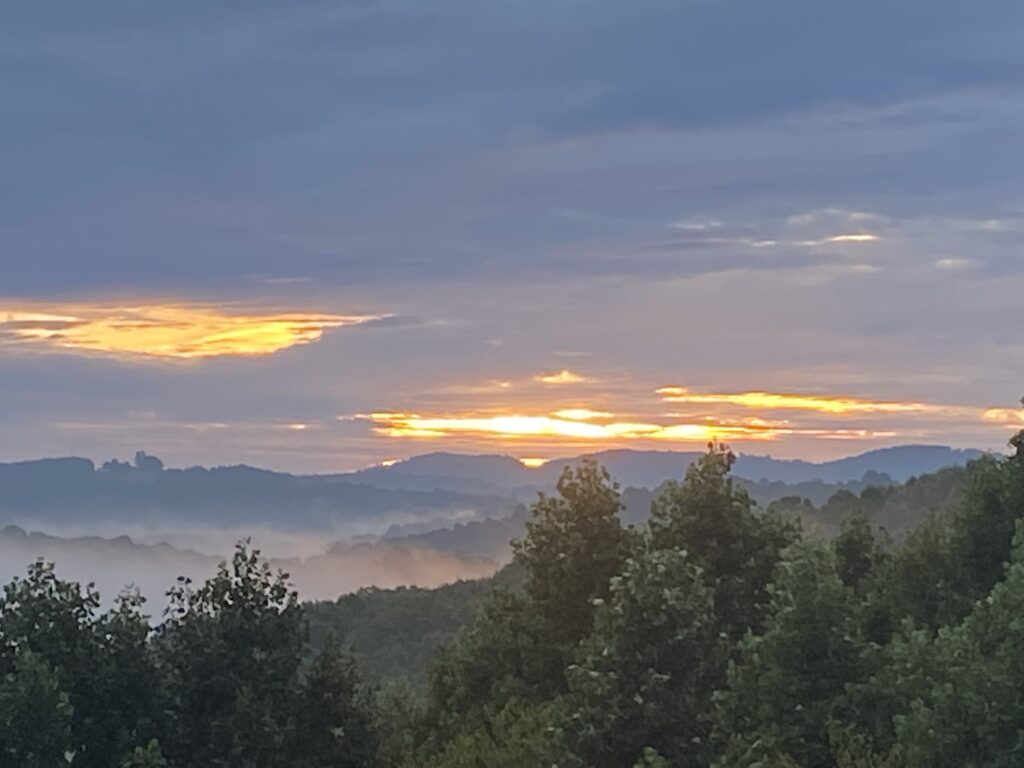Jeff Garrison
Bluemont and Mayberry Presbyterian Churches
October 31, 201
Isaiah 12
At the Beginning of Worship
Today is Reformation Sunday. 504 years ago, on this date, Martin Luther nailed up his 95 Thesis. This marked the beginning of the Protestant Reformation. I will use the gap between now and the beginning of Advent (as I don’t have enough time to complete our study of Daniel) to give you a primer on our Presbyterian or Reformed heritage. Today, I am going to highlight the work of John Calvin and the important concept within our tradition, the sovereignty of God.
The Reformed Tradition
Our tradition began in Switzerland, at approximately the same time as Luther’s Reformation in Germany. The first city to convert to a Protestant faith was Zurich under the leadership of Urich Zwingli. The Reformation spread to other cities within the Swiss Confederation. Geneva adopted the Protestant faith in 1535 under the leadership of William Farel. The next year, Farel encouraged John Calvin, a refugee traveling through Geneva, to join him in the work.
Calvin’s Influence

In many ways, the Protestant movement has never been the same since Calvin placed his imprint upon it. Foremost in his teaching is the sovereignty God. To understand Calvin, we must examine him in light of the 16th Century and get beyond the view of him being a grumpy old man.[1] He wasn’t! Calvin’s impact on our world is immense, far beyond theological and biblical studies. At the turn of the 21st Century, one survey identified Calvin as one of the ten top individuals within Western civilization that defined the previous millennium.[2] His writings, teachings, and sermons influences not only theology, but government and economics. You see vestiges of Calvin’s thought in the founding of our nation.
In this service in which we draw from Calvin’s worship style, I hope that not only do you learn about him, but why he felt so strongly about his theological convictions which should strengthen our lives as followers of Jesus.
Calvin’s Life
To be fair to Calvin, I should acknowledge he’s probably rolling over in his grave at all the fuss made about him. Calvin was a simple man: a pastor and a teacher. He didn’t seek publicity. Upon his death, he insisted he be buried in an unmarked grave. His wish was granted. But Calvin’s influence is still felt.
Born in France, on July 10, 1509, Calvin fled from his home country due to religious persecution. He ended up in Geneva, where he spent most of his life. Geneva, in the 16th Century, was far ahead of the rest of Europe, politically and economically. Then, as today, it was a banking capital. Compared to the rest of the continent, Geneva was a relatively tolerant city.[3] (Relative is the operative word—this was the 16th Century, after all.) Due to the turmoil of the times, Geneva attracted large numbers of refugees from all over Europe. Calvin was one of these refugees.
In Calvin’s ministry, he encouraged the city to take care of the poor. With so many refugees, the city was overwhelmed. Calvin had the church receive and give out an offering to the poor, a practice he tied to the Lord’s Supper. Such gifts should remind us that after being nourished by God, we should consider the nourishment of others. But Calvin wasn’t just content to take care of the poor. He also encouraged everyone to work, including refugees of noble birth, many of whom felt they were above such tasks.[4]
Calvin also turned the medieval usury laws on their head. He felt it was okay to charge interest if one made a loan to help someone start a business—the person who made the loan should benefit from the success of another. But he did not think it was okay to take advantage of the poor, loaning to them with high interest rates and forcing them into a subservient position.[5] Calvin would be quite critical of today’s “pay day loans.”
Education was another focus of both Calvin and the city of Geneva. The city required children to be educated, and it was provided free to the poor.[6] Calvin started the Academy, where he taught refugees about the Bible and the Christian life. When these refugees returned to their homes, they took with them Calvin’s teachings which emphasized the importance of God’s Word. One such student was John Knox, who led the Reformation in Scotland, where the word “Presbyterian” was first used.
Calvin’s Worship Style
Calvin grounded his worship in two things: God’s word and prayer. God’s word was quoted at the beginning and end of worship and was used throughout. The Bible was also read right before the sermon. The Word was heard through music. Generally, like the Hebrews before them, the Psalms were put to music. In addition to God’s word, prayer was important and offered throughout the service—starting with a prayer of confession. Calvin realized that it was important to come before God with a clean heart; therefore, worship began in confession. The Lord’s Prayer was also important and often repeated three times in the service, a trick I won’t try today. [7]
Before the Reading of Scripture
For my sermon this morning, I want us to look at Isaiah 12. It’s a short chapter which will allow me to draw some conclusions about Calvin’s theology and how it should influence our lives of faith.
Read Isaiah 12
Calvin’s Seal
The seal Calvin adopted for himself had a hand offering up a heart. The words around the seal read, “My heart I offer to you, Lord, promptly and sincerely.”[8] This symbol reflects Calvin’s faith grounded in a sovereign and loving God.
Today’s Text

Isaiah 12 is a Psalm of Thanksgiving. Israel can rejoice because God’s anger has been turned away. In the face of such news, offering ourselves to God—heart and all—is an appropriate response.[9]
Verse one tells us that God’s anger has been removed which leads Isaiah in verse two to proclaim God to be his salvation! There is no longer a need to be afraid. When we are in bondage to sin, we are cut off from God, and there are plenty of reasons for us to fearful.
John Calvin, writing on this passage, speaks of how sin clouds or fogs our mind. When we are away from God, we are filled with dread. But when the news of God’s salvation is heard, experienced in the coming of Christ, it’s like the sun burning away the fog; and we can have confidence in God’s mercy. Drawing upon Colossians 3:15, Calvin continues saying that this confidence should fill our hearts and “banish all fear and dread.” We are not “free from all distress,” but we have the assurance that in the end we will be victorious.[10]
Calvin is realistic. Although we have confidence, we still battle sin. Our hope is that because of God’s love and mercy, we will be successful and reunited with our Savior. There will be times in our lives when we are distressed. Those who suggest that the Christian life is free from all troubles don’t know what they are talking about, but we can hold tight to the promises made in Scripture and have assurance and hope.
God as a Fountain of Goodness
In the third verse, “with joy you will draw water from the wells of salvation,” we come upon one of the two main metaphors Calvin uses for God. Calvin sees God as being a Father, and frequently uses the parent metaphor for the Almighty. The other metaphor that Calvin commonly uses for God is that of the fountain or a well.[11] This metaphor ties into our baptism; God is the fountain of all goodness. Isaiah refers to this fountain or well as a place from which we are nourished. “This is a very beautiful metaphor,” Calvin writes, “for in this life nothing is more necessary than water… Thus, by this figure of speech… [Isaiah] declares that everything necessary for supporting life flows to us from the underserved goodness of God. And since we are empty and destitute of goodness, he appropriately compares the mercy of God to a fountain.”[12]
Nathan Coulter
You know, when you are thirsty, there is nothing better than a good cold drink of water drawn from the depths of the earth. Wendell Berry’s novel, Nathan Coulter, ends at such a place. Nathan and his grandpa have been out watching the men cut hay. As his grandpa is now too old to work the fields, Nathan escorts him back to his home.
As they make their way across fields and pastures, they come upon the spring in a notch in the rock down by the brow of the hill. The old man sits down to rest. The boy goes and draws a cup of water for his grandpa. He takes the cup and cuddles it in his hand, looking at the spring and commenting that he’d never known it to go dry. As he drinks from the cup, Nathan thinks of all who’ve drunk from the spring, his father, grandfather, and great-grandfather and of those who inhabited the land before them.[13]
Spring as a Foundational Metaphor
Berry’s description of the spring reminds us of why the metaphor of a well (or spring or fountain) is foundational for John Calvin. Like the Coulters, we drink from this spring, generation after generation, as we are nurtured by the God of our salvation. We drink from the same well as Calvin and the believers in the church throughout the ages. God never changes and when we study scripture, we learn of God’s eternal truths. When we drink from this well, we will be strengthened and more confident. This new disposition will embolden us to sing God’s praises and to proclaim his great deeds.
Concluding in Praise
Our chapter ends with Isaiah calling on Israel, who has experienced God’s salvation, to praise God and to tell others—all the earth—about the goodness of the Lord. We’re not to just praise God as individuals; we’re to draw others into our celebration. We’re a part of a world-wide community that praises the Lord. Here I think we see the essence of our faith. When we experience God’s love, we react in joyful obedience. By the way, worship is a form of work and yes, works are important. This isn’t because our good deeds get God to notice us or because we can earn our salvation. Works are important because they are the consequences of our salvation.
Having been freed from God’s anger, we rejoice and encourage others to rejoice. Having experienced the goodness of the Lord, we should also show goodness and mercy to others.
Be the Salt of the Earth
One final thing about Calvin: he encouraged believers to get involved, to be the salt of the earth.[14] We’re to work for the betterment of others, and in doing so, we praise God. All of life is worthy of our religious attention. Once we’ve been freed from the bonds of sin, out of joy, we should praise God and share his love. That’s the essence of this passage.
The next time you’re thirsty and go for a cold drink of water, pause for a moment, and think about how God is like a well that never goes dry, always refreshing us with crisp cold water that quenches our thirst. And then remember to give thanks. Amen.
©2021
[1] See Charles Partee, The Theology of John Calvin (Louisville: Westminster, 2008), especially his opening and concluding chapters.
[2] Richard John Neuhaus, editor, The Second One Thousand Years: Ten People Who Defined a Millennium (Grand Rapids: Eerdman, 2001).
[3] For a discussion of Geneva’s tolerance, see Marilynne Robinson, The Death of Adam: Essays on Modern Thought (NY: Picador, 1998), 198.
[4] Alister McGrath, “Calvin and the Christian Calling,”, The Second One Thousand Years: Ten People Who Defined a Millennium, Richard John Neuhaus, editor (Grand Rapids: Eerdman, 2001), 73.
[5] McGrath, 70.
[6] Robinson, 199.
[7] For information on Calvin’s worship style, see Larry Sibley, “Ten Worship Planning Ideas from John Calvin, Reformed Worship # 92 (June 2009), 34-35.
[8] For a background to this symbol, which is now used as the seal for Calvin University, see http://www.calvin.edu/about/history/calvin-seal.html.
[9] For the setting of this chapter, see Christopher R. Seitz, Interpretation: Isaiah 1-39 (Louisville, KY : John Knox Press, 1993), 111.
[10] John Calvin, Commentary on Isaiah 12:2
[11] See B. A. Gerrish, Grace and Gratitude: The Eucharistic Theology of John Calvin (Minneapolis: Fortress, 1993), 25-28.
[12] John Calvin, Commentary on Isaiah 12:3
[13] Wendell Berry, Nathan Coulter (1960: New York: North Point Press, 1985), 179-180.
[14] McGrath, 75.









